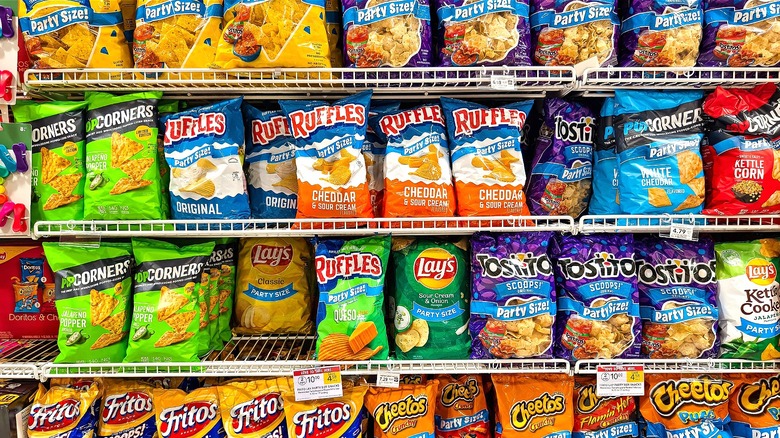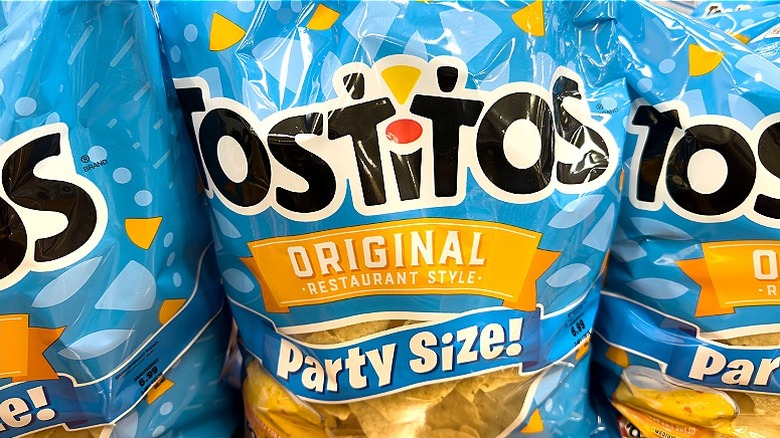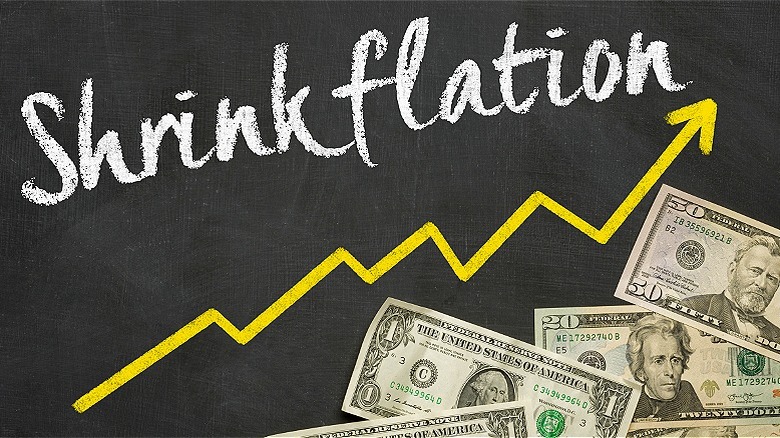This Major Snack Company Shrank Its Chip Bags (And It Went So Wrong)
U.S. consumers have had to deal with a LOT in the post-pandemic economy. While inflation drove up prices on everything, from groceries to housing, some of the most problematic financial struggles have been the direct result of corporate greed.
Terms like greedflation and shrinkflation (here's a refresher) have not only entered the American lexicon but have become so widespread that many U.S. consumers now expect a certain level of deceptiveness from their favorite products. From smaller quantities of home products like trash bags and toilet paper to shrunken food item sizes, consumers have taken note of the shrinkflation affecting their purchases. Perhaps the worst part of shrinkflation is its two-fold insult to injury. Not only are goods more expensive than they were pre-pandemic, but consumers are also receiving less of the product at the same time.
While shrinkflation has affected many products, perhaps none have been as noted (and shared on social media) as bags of chips have. In particular, PepsiCo's Tostitos and Ruffles chips have drawn the ire of consumers for their considerable shrinkflation tactics. Notably, the company's shrinkflation has pushed more and more consumers to buy cheaper brands or to avoid snack purchases altogether. During the second quarter of 2024, PepsiCo's snack sales dropped 1% while the company's snack volumes dropped by 1.5%. While, for many, the obvious solution would be to undo the shrinking quantities in its offered products, PepsiCo instead offered a rather unique promotion (that is not as appealing to consumers as the company had hoped): bonus bags.
PepsiCo's questionable promotion for its chips
The general premise of PepsiCo's plan is to put "bonus" bags in select locations that will contain 20% more chips than the current shrinkflation-quantity bags on the market, but cost the same as the standard bag. As a special promotion, it is largely thought that these bonus bags will only be offered for a limited time, leaving consumers with the same lesser-quantity bags once the promotion concludes. Plus, depending on location, not all consumers can find and purchase these bonus bags. Questions abound over how, exactly, consumers are supposed to react to PepsiCo's temporary measure in the face of such significant price increases.
According to the Bureau of Labor Statistics, in pre-pandemic January 2020, the average price of a 16-ounce bag of potato chips was $4.49. As of September 2024, that same bag cost $6.46. Robert Moskow, an analyst at TD Cowen, explained to CNN that chips, in particular, have faced higher price increases than other kinds of snacks in the country. Moskow added that the price per ounce of salty snacks has increased 36% since 2020, compared to a 21% increase in overall grocery store prices.
However, the worst part of these price increases is that they have occurred simultaneously with significant product shrinkage. Tracking from Consumer World, a public service education website, found that several versions of Tostitos' brand chips have shrunk in recent years. From one-half to 2 full ounces across different products, fans of Tostitos chips have been getting significantly fewer chips for their money (much like what McDonald's fans are also experiencing).
What's next for shrinkflation and American consumers?
It's worth mentioning that the backlash against brands and increasing shrinkflation has caught the attention of U.S. lawmakers (and even Cookie Monster). Ahead of the Super Bowl back in February 2024, President Joe Biden put out a video criticizing shrinkflation, and in October, Massachusetts Sen. Elizabeth Warren and Pennsylvania Rep. Madeleine Dean sent letters to PepsiCo, General Mills, and Coca-Cola on the topic. In these letters, Warren and Dean accused the companies of dodging taxes, as well as engaging in a pattern of profiteering that hurts American consumers. The lawmakers wrote, "Shrinking the size of a product in order to gouge consumers on the price per ounce is not innovation, it is exploitation."
While Democratic lawmakers introduced the Price Gouging Prevention Act in mid-February 2024, it's since failed to find traction in the Senate during a busy election cycle. At the same time, PepsiCo and Coca-Cola have denied the accusations that they have shrunk their products for profit, leaving consumers to decide for themselves where to spend their money. Since federal consumer protections are unlikely to come anytime soon, consumers will ultimately have to choose which brands are worth the cost (or not) the next time they're at the grocery store. (Check out the number frugal shoppers always check when grocery shopping.)
It's worth noting that from 2018 to 2022 Coca-Cola made $13.4 billion, General Mills made $12 billion, and PepsiCo made $22.4 billion. So, while purchasing a Tostitos bonus bag can get you back to pre-shrinkflation chip bag sizes temporarily, it's safe to say those larger chip bag sizes probably won't be back in any kind of permanent way.


